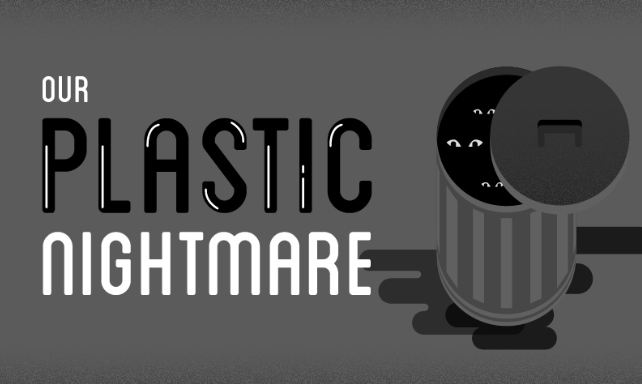Fantastic plastic

Plastic represents one of the biggest contradictions of our society. One one hand it is a material that it is strong, cheap and light and hence its convenience means it is everywhere and use for almost everything. On the other hand the main advantages of plastic are also the problem why plastic is such a problem.
Because it is cheap it gets disposed a lot more than it should, because it is light it is often blown away and because it doesn’t biodegrade it pollutes forests, rivers and oceans and has already entered the food chain.
The wise thing to do would be to limit the use of plastic to what is necessary and make sure that there is a plan for all plastic that enters the market to maximise the time of use and then ensure that it is all collected and recycled.
For instance; as we can see in the graph below from Education Database Online Blog it takes 1/4 liter of oil and 3 liters of water to produce the plastic bottle that we will use only once and for a very limited amount of time to drink 1liter of water!
From the design point of view it doesn’t make sense to engineer a material that will take centuries to degrade to be used only during some hours in the best case. The wise thing to do is take advantage of the fact that the material is indestructible to design a system to collect and refill it like it is done in some deposit systems in Europe.
In 2009, Europe landfilled 45% of plastic (11,2 million tn, equivalent to more than 10 million tons of crude oil!), it burned 22% (5,5 Mtn) and recycled only 31% (7,6 Mtn). Landfilling and burning of plastics (even with energy recovery) is a waste of energy and resources. As we can see in the graph below producing a new bottle out of recycled material needs only 12% of the energy that would be needed to manufacture a new one.
The EU Commissioner for Environment, Janez Potocnik explained the need to increase plastic recycling in Europe and how if we achieve 70% recycling it would mean creating 160,000 additional jobs. Further, a new report from the European Commission explained how EU exports of plastic to Asia for recycling have increased 5 times in the last decade.
Isn’t it time for the EU to gear up and design better plastics -with less toxics-, better products and better systems that allow us to make use of the advantages of plastic without having to suffer all the disadvantages?